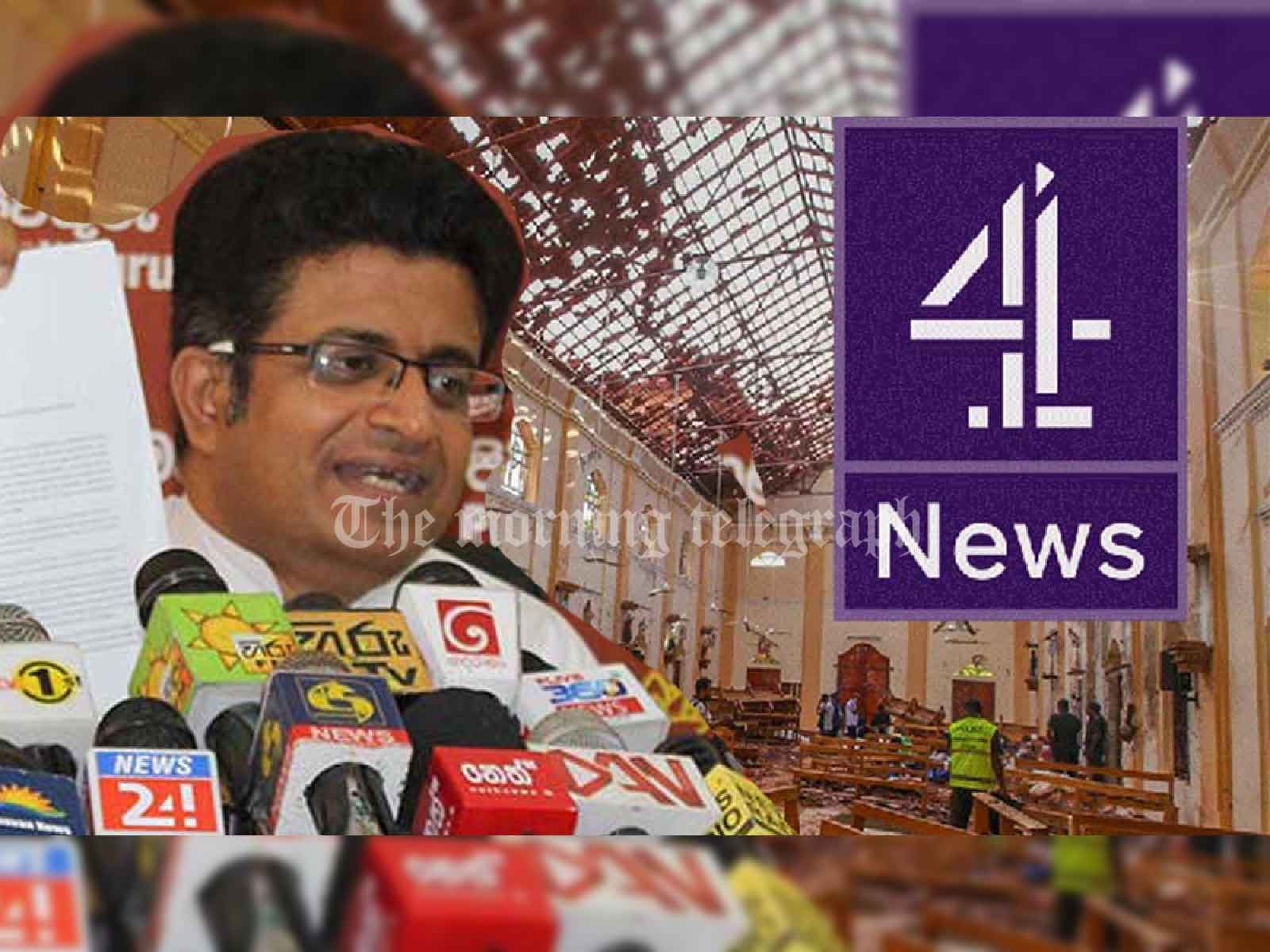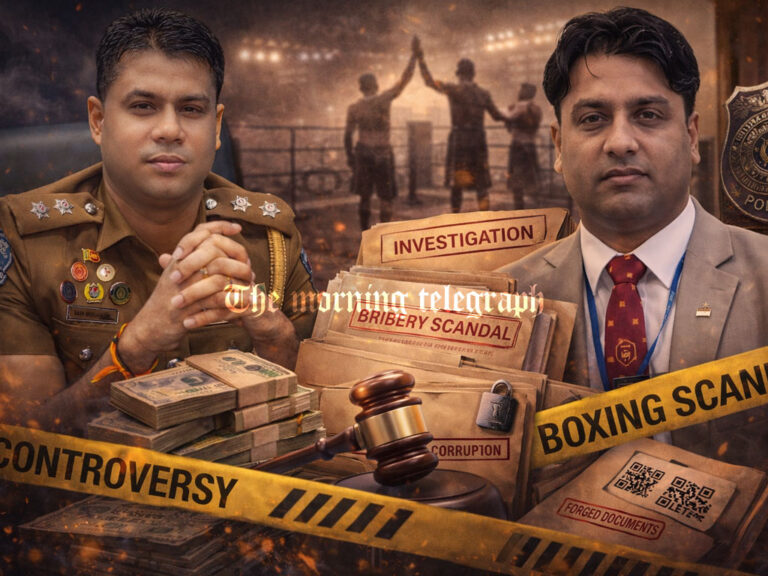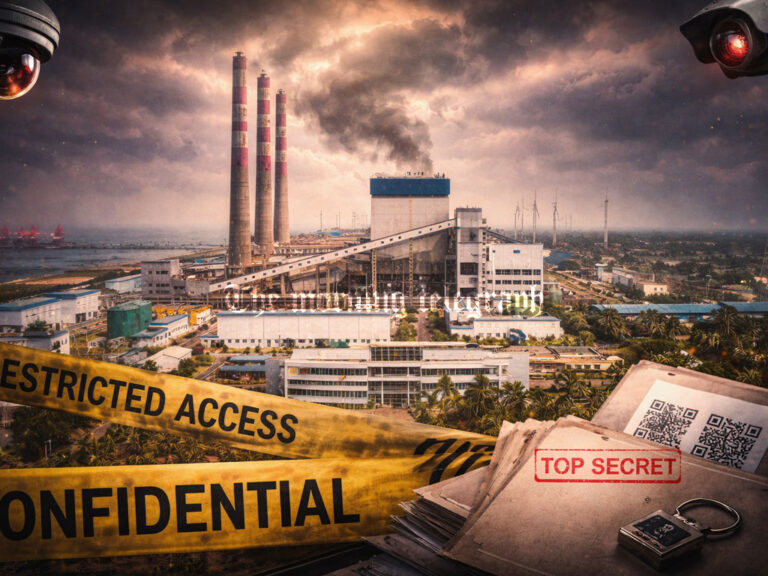
During the press conference, Udaya Gammanpila discussed the composition and credibility of the Imam Committee, which was tasked with investigating the allegations made by Channel 4 regarding the Easter Sunday attacks. The committee was chaired by retired Supreme Court Judge S.I. Imam, bringing legal expertise and a background in judicial fairness. Alongside him was Air Vice Marshal Jayalath Weerakkodi, a former Air Force commander, whose military experience was crucial due to the nature of the allegations involving military operations and intelligence activities. Senior presidential lawyer Harsha Sosa also served as a committee member, offering legal insights into the investigation.
Gammanpila highlighted the religious diversity among the committee members, who represented Islam, Buddhism, and Catholicism. He emphasized that this was a deliberate effort by the government to ensure balanced representation, especially in light of Channel 4’s claims that Islamic extremists had been manipulated for political gain during the Easter bombings.
Channel 4’s documentary alleged that the bombings, which targeted Christian churches and luxury hotels, were orchestrated by Sri Lankan military intelligence to influence the 2019 presidential election in favor of Gotabaya Rajapaksa. The claim was that intelligence agencies allowed the attacks to happen, creating fear and unrest that would ultimately boost Rajapaksa’s electoral prospects, given his reputation for a strong stance on national security.
However, the Imam Committee’s report refuted several key points made in the documentary. One major claim, that intelligence chief Suresh Saleh had met with Saharan Hashim and other terrorists in February 2018 to plan the Easter bombings, was deemed impossible. The committee’s investigation revealed that the location where this meeting was allegedly held—a coconut estate in Vanathavilluwa—had no house or facilities during the specified time. Moreover, Saleh was posted at the Sri Lankan Embassy in Malaysia during this period, making his presence in Sri Lanka unlikely. His diplomatic status required approval for any travel back to Sri Lanka, and the report indicated that he had only visited the country once in November 2017.
Further discrediting these claims were call records showing that Saharan and his associates had not left the Eastern Province during the alleged meeting period, contradicting Channel 4’s narrative that they had been in Puttalam for the planning session. Gammanpila also questioned the credibility of Azad Maulana, the main whistleblower in the Channel 4 documentary. Maulana was closely associated with Saharan’s network and had assisted Saharan’s injured brother in obtaining medical treatment. The committee speculated that Maulana’s participation in the documentary may have been motivated by his personal desire to seek refugee status in Switzerland, rather than a genuine attempt to expose any wrongdoing.
In response to Channel 4’s documentary, the Ministry of Defense issued a strong denial of the allegations, while Suresh Saleh threatened legal action against the broadcaster. Following this, Channel 4 removed the documentary from its online platforms, a move Gammanpila interpreted as an indication that the channel lacked confidence in the authenticity of the claims.
Gammanpila accused the government of deliberately suppressing the Imam Committee’s report to protect high-ranking officials. He claimed that a retired senior officer, who had aided Channel 4 in defaming Sri Lanka’s intelligence services, was rewarded with a prominent position in the current government. If the report had been made public, Gammanpila argued, it would have exposed this individual’s involvement and revealed the government’s hypocrisy. He also suggested that political motives were at play, noting that when the National People’s Force (NPP) was in opposition, they had called for a thorough investigation into Channel 4’s allegations. Now, as part of the ruling coalition, the NPP was seemingly complicit in keeping the report hidden.
The suppression of the report, according to Gammanpila, was part of a broader pattern of neglect and interference that had weakened Sri Lanka’s intelligence services. He argued that these services, which had played a crucial role in counter-terrorism operations during the civil war, had been sidelined and compromised. This deterioration, he said, contributed to the intelligence agencies’ failure to prevent the Easter Sunday bombings, despite multiple warnings. The report confirmed that intelligence officers had sent nearly 200 warnings about Saharan Hashim’s activities to law enforcement and security authorities, including 17 reports in the months leading up to the attacks. These warnings were based on intelligence gathered by officers who had infiltrated extremist groups, yet the failure of authorities to act on them allowed the tragedy to unfold.
Gammanpila further stressed the importance of revitalizing Sri Lanka’s intelligence agencies to restore national security. He argued that the president, now in his role as Commander-in-Chief, had a duty to prioritize the protection and strengthening of the country’s intelligence services, rather than allowing them to be weakened by political conflicts and personal agendas.
In a move toward transparency, Gammanpila made the full Imam Committee report, including its attachments, available to the public on his website and social media platforms. He challenged the government to investigate the identity of the retired senior officer implicated in the report rather than attacking him or the committee’s findings. Gammanpila also called on the president to appoint a special commission to investigate the retired officer’s role in tarnishing the reputation of Sri Lanka’s intelligence services. He concluded by reminding President Ranil Wickremesinghe of his past commitment to upholding the public’s right to know and urged him to fulfill his responsibility to protect national security.
The Imam Committee’s report has added further complexity to the ongoing controversy surrounding the 2019 Easter Sunday bombings. It raises critical questions about the role of intelligence agencies, the political dynamics within the current government, and the extent to which political interests have shaped the country’s response to one of its most tragic events.




